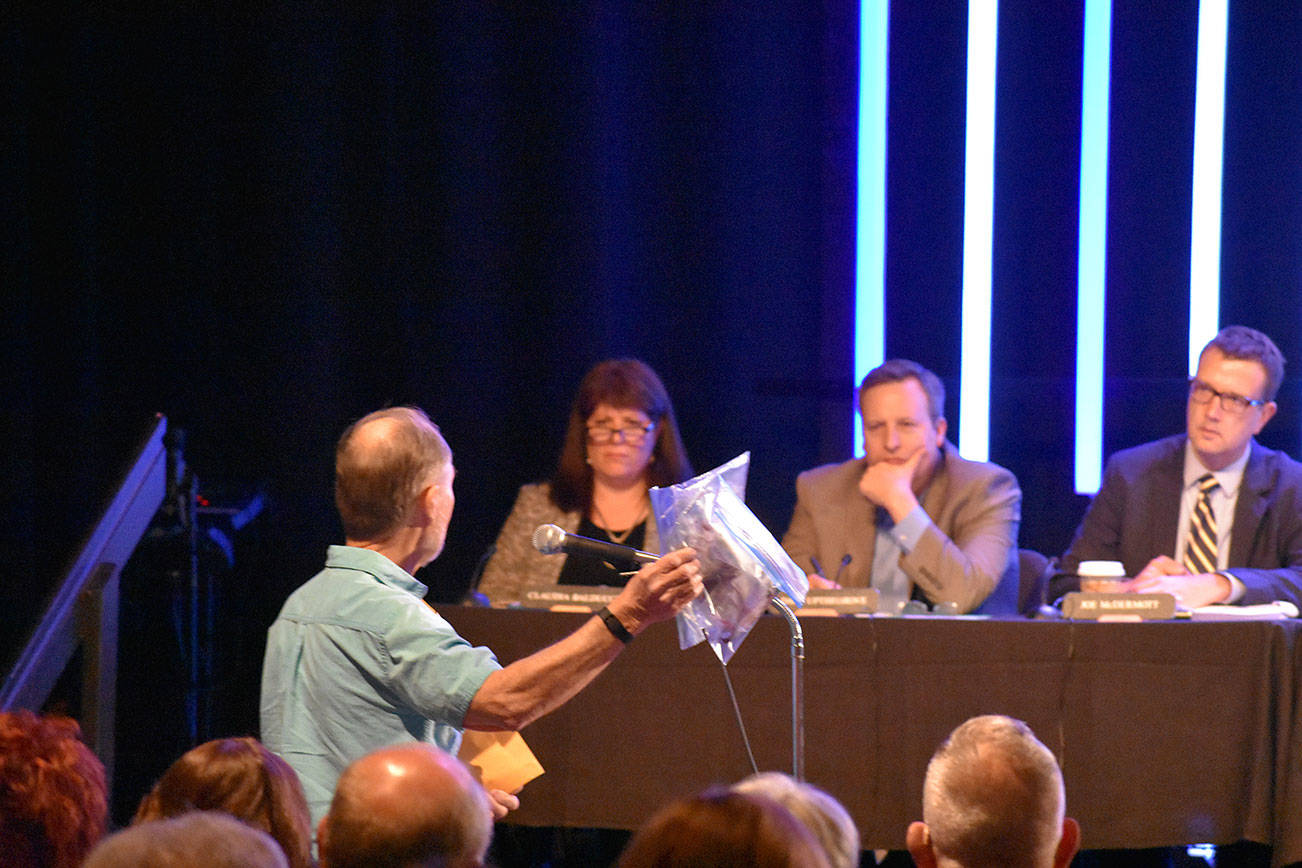Hundreds of people gathered March 20 at the New Life Church in Renton to voice their concerns about three local environmental issues.
Comments during the meeting centered on three topics: the proposed asphalt plant slated for state Route 169, the possible expansion of King County’s Cedar Hills Regional Landfill and the Cedar Groves composting plant in Maple Valley.
Eighty people in total spoke during public comment addressing King County Councilmembers during a three-hour special meeting.
Several folks came clad in red paint and custom T-shirts, protesting outside the meeting in opposition of a Lakeside asphalt plant, the subject of several protests in previous months.
Speakers who talked about the asphalt plant mentioned concerns about industrialization of the area, salmon impact in the nearby Cedar River and the potential for fires at the proposed plant. Some said they live in houses above the proposed site.
Most speakers uniformly opposed an expansion of the landfill that would build a ninth cell and extend its life through 2040.
The overall message delivered to county councilmembers could be summarized by one speaker who said: “You’ve decided this is your area to get rid of waste.”
Several speakers said they were worried about the lining at the landfill leaking and contaminating nearby groundwater and wells.
Another frequent complaint was an increase in nauseating smells from compost operations — including those from both the landfill and the composting plant — that can spread for miles.
One resident said he has smelled the landfill from downtown Issaquah.
If the landfill’s life is extended, it could additionally increase its height limit from 788 feet above sea level to 830 feet. This could put it in conflict with various settlement agreements the county has signed limiting the landfill’s height from growing.
At least two people said bald eagles from the landfill have been dropping biological waste, rotting meat and other hazardous material on their properties. One man at the public hearing presented bio-waste he claimed was from eagles.
Many people who spoke expressed support for an alternative in which the county would build a waste-to-energy (WTE) plant to burn garbage and convert it to energy.
The county will be examining ways to deal with its trash for the remainder of the year, with the county council expected to vote on its preferred alternative early next year.
The Cedar Hills Regional Landfill is the last in the county and was built in the late 1960s. An eighth and possibly final cell is currently being built to extend its life until 2028, but the county council could choose to build another.
An environmental impact statement (EIS) was recently released detailing five possible paths for the county moving forward.
The first of these options would be to pack the county’s waste onto trains and ship them to a landfill in Eastern Washington, Idaho or Oregon.
The county generates roughly 1.3 million tons of waste annually. Trash from the county would account for around 2 percent of all freight on rail lines going through the state and cost between $5 million and $7 million in capital costs.
A second option, which was uniformly opposed by speakers at the March 20 public hearing, would be increasing height limits at the landfill to house more waste.
This is expected to cost up to $270 million in capital expenses. The third would be the WTE power plant and would cost up to $1.4 billion to construct.
While this option has been controversial in the past, residents near Cedar Hills, frustrated by worsening smells, seemed to support it more than the other options.
The final two options involve using aerobic and anaerobic digestion processes to create methane, a potent greenhouse gas that could be siphoned off and refined to create natural gas.
The cost for this fluctuates and depends on whether the county would run a natural gas facility or contract out to a private company. Estimates range from between $34 million to $190 million.
Contact reporter Haley Ausbun with story tips at hausbun@rentonreporter.com or by phone at 253-678-3148.


